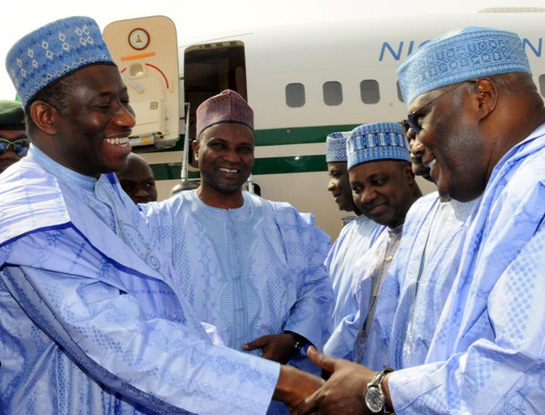The African Charter on Democracy, Elections and Governance, referred to in this piece as the (ACDEG), is the most important and strategic normative framework on democracy, elections, governance and human rights in Africa. The origin of the ACDEG is traceable and has strong links with the Organisation of African Unity (OAU) 1963 Charter; the African Union (AU) Constitutive Act (2000); the Economic Community of West African States (ECOWAS) Protocol on Democracy and Good Governance (2001); and the South Africa Development Communities (SADC) Protocol on Politics, Defence and Security Cooperation (2001).
The ACDEG was adopted by the African Union Heads of State and Government on 30th January 2007, and it came to force on 15th February 2012. The Charter has fifty three articles and ten Chapters.Its overarching objective is to promote democratic governance through effective implementation of democratic principles in AU member states. As at today (September 2014), of the fifty-four (54) African Union (AU) member states, forty six (46) have signed the ACDEG, while twenty three (23) have ratified it. Article forty-eight (48) provides that fifteen (15) African Union Member States must ratify the framework before it can come to force.
As one of the advocates of the Charter on the continent, my experience has brought so many questions to light. The most prevalent of these questions is: has the Charter impacted positively on democratic governance on the continent? Responses to this question differ depending on several schools of thought. A review of literatures on the Charter reveals three broad conclusions on the above question.
First, many have argued that the adoption of ACDEG is a demonstration of enthusiasm on the part of the AU and its member states to embrace democratic governance in Africa; but effective implementation of the Charter’s provision is what will bring democratic emancipation and dividends to the people of Africa and not just the provisions. In other words, the provisions are means to an end and not an end in themselves.
Advertisement
The second argument posit that the incessant conflict crises in Africa coupled with poverty, human rights violation; electoral malpractices and underdevelopment makes the Charter a toothless dog and “African democracy” a questionable one.
The third school of thought argues that democratisation is a process. Similar to the American and European experiences, the African political system is transforming and developing. It has transformed from colonial, military and authoritarian regimes to electoral democratic governance. The current phase that the continent is grappling with is the “stabilization democratic phase” that will usher in the full and expected democratic dividends. The Charter for example condemns undemocratic/unconstitutional changes of government in article twenty-three (23). The implementation of this provision led to the suspension of the African Union Member States such as Mali, Egypt, Mauritanian, Ivory Coast for violating the article.
As argued by the first school of thought mentioned above, had the African Union member states, particularly the state parties to the charter taken seriously article 27(10) of the African Charter on Democracy, Elections and Governance, the current out-break of Ebola Fever in Liberia, Sierra Leone, Nigeria and Senegal would have long been prevented. Liberia is the only country that has not ratified the Charter among the countries where the epidemic is currently ravaging. Unknown to so many, Ebola Fever is not new in Africa; this was why the Charter prioritized its prevention on the continent in the Charter some years ago. Like HIV/AIDS and tuberculosis, the disease portends great danger to socio, economic and political integration and development in Africa. This conviction made the African Union in 2007 to include its prevention in the Charter. Unfortunately, the provision on Ebola in the instrument was neglected until the recent break out of the epidemic.
Advertisement
You may be wondering and asking but whose fault and problem? The answer is simple and straight forward. Chapter ten (10) of the ACDEG focuses on implementation strategies and mechanisms. The Chapter indicate three levels of application, and monitoring of adherence to the provisions of the Charter; Member state Level – State Party Government; Regional Level – Regional Economic Communities (RECs), and Continental Level-African Union Commission (AUC).
From the foregoing, one can conclude that the problem of Ebola fever in Africa is a collective failure (regional, continental and international) and equally a global problem. At the national and continental levels, the African Union and its member states saw the danger and took the necessary normative measure to prevent it but failed to act on the provision in the instrument to prevent the scourge. At the regional level, Regional Economic Communities (RECs) usually referred to as the “African Union building blocks” failed in the sense that it did not promote the implementation of the Charter to prevent Ebola fever in its member states.
As expected, while there is no provision for application, and monitoring of adherence to the provisions of the Charter at the international level, the Charter however provides in article 51 (3) that upon entry into force, the Chairperson of the African Union Commission shall register the Charter with the Secretary General of the United Nations in accordance with article 102 of the Charter of the United Nations. If this provision on the United Nations is not just a mere provision, the United Nations- UNICEF and UNFPA also failed to promote implementation of section 27(10) of the African Charter on Democracy, Elections and Governance on Ebola fever.
In conclusion, while this piece is by no means taking the blame for Ebola fever away from the African continent, its central argument is that the African Union and its Member States should prioritize the implementation of its normative frameworks and other socio, economic and political policies and programmes. African Union should be an implementation-enabling organisation and not just a policy drafter. Globalization is a fact of life and Ebola fever like HIV/AIDS is a global challenge and all hands must be on deck to tackle the challenge.
Advertisement
While the ongoing management and preventive measures on Ebola Fever by the African Union is commendable, commitment to and implementation of all the African Union normative frameworks is fundamental to their accomplishment. It is on this note that all the stakeholders- national, regional, continental and international-must pool the necessary resources and join hands together to promote ratification, domestication and implementation of all instruments that are pre-requisite to the socio-economic and political integration and development of Africa.
*Ikubaje is a Governance and Development Expert at the Department of Political Affairs of the African Union Commission (AUC), Addis-Ababa, Ethiopia. The opinion expressed in this piece is by no means associated with the African Union Commission but strictly that of the author. He can be reached at [email protected]
Views expressed by contributors are strictly personal and not of TheCable.
Add a comment




